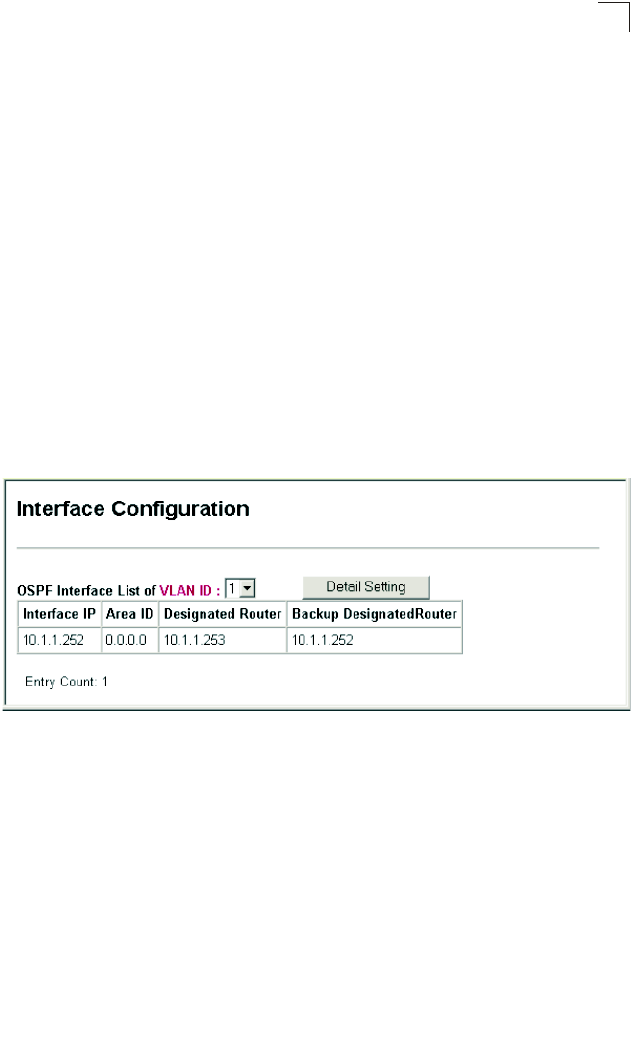
IP Routing
3-245
3
- You can assign a unique password to each network (i.e., autonomous system)
to improve the security of the routing database. However, the password must be
used consistently on all neighboring routers throughout a network.
• Message Digest Key-id – Assigns a key-id used in conjunction with the
authentication key to verify the authenticity of routing protocol messages sent to
neighboring routers. (Range: 1-255; Default: none)
- Normally, only one key is used per interface to generate authentication
information for outbound packets and to authenticate incoming packets.
Neighbor routers must use the same key identifier and key value.
- When changing to a new key, the router will send multiple copies of all protocol
messages, one with the old key and another with the new key. Once all the
neighboring routers start sending protocol messages back to this router with the
new key, the router will stop using the old key. This rollover process gives the
network administrator time to update all the routers on the network without
affecting the network connectivity. Once all the network routers have been
updated with the new key, the old key should be removed for security reasons.
Web - Click Routing Protocol, OSPF, Interface Configuration. Select the required
interface from the scroll-down box, and click Detailed Settings.
Figure 3-138 OSPF Interface Configuration


















